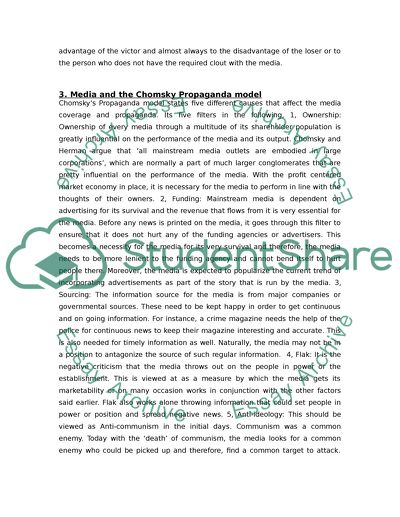Cite this document
(“Military and the Media Essay Example | Topics and Well Written Essays - 2000 words”, n.d.)
Military and the Media Essay Example | Topics and Well Written Essays - 2000 words. Retrieved from https://studentshare.org/politics/1520639-military-and-the-media
Military and the Media Essay Example | Topics and Well Written Essays - 2000 words. Retrieved from https://studentshare.org/politics/1520639-military-and-the-media
(Military and the Media Essay Example | Topics and Well Written Essays - 2000 Words)
Military and the Media Essay Example | Topics and Well Written Essays - 2000 Words. https://studentshare.org/politics/1520639-military-and-the-media.
Military and the Media Essay Example | Topics and Well Written Essays - 2000 Words. https://studentshare.org/politics/1520639-military-and-the-media.
“Military and the Media Essay Example | Topics and Well Written Essays - 2000 Words”, n.d. https://studentshare.org/politics/1520639-military-and-the-media.


